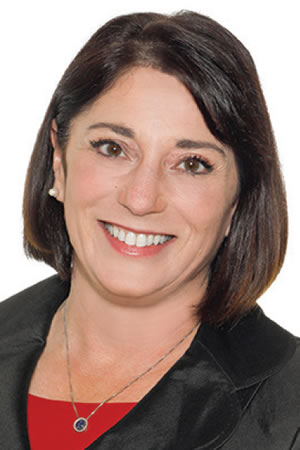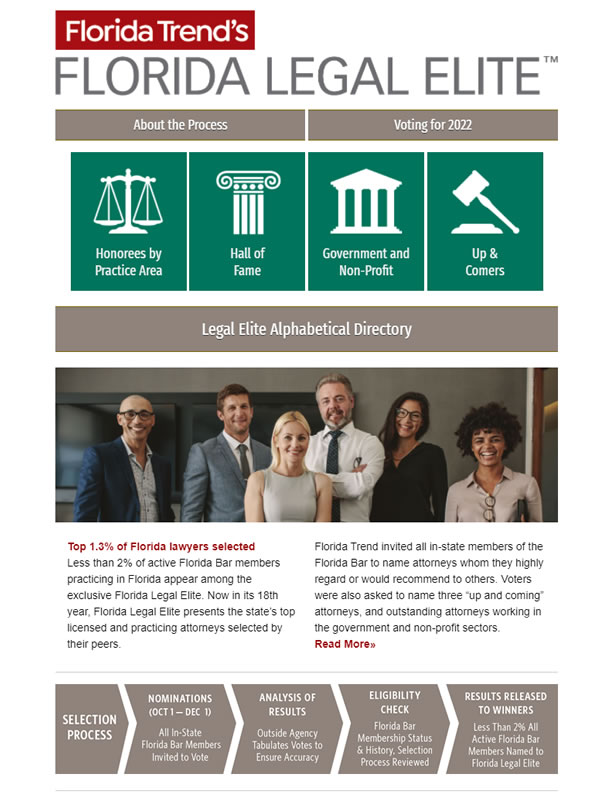SHARE:

Vickie Chachere
Editor's Page
Little Ripples, Big Waves
Peter Betzer is a rare figure who has crossed between the worlds of academia and economic development in Florida. St. Petersburg has emerged as one of the nation’s leading marine science research and innovation hubs, a standing achieved because of the business community’s long history of supporting its marine science sector, and Betzer’s vision as the founding dean of the University of South Florida’s College of Marine Science and then later as president and CEO of the St. Petersburg Downtown Partnership.
Betzer is also known widely as an advocate for bringing more women and diverse students into science, and he’s one of the reasons that the college has been a magnet for talented researchers from around the nation and the world. So, when Betzer sent a message recently telling me he wanted me to meet an emerging national figure in science who happened to be a USF College of Marine Science graduate, I knew I was about to meet someone who wasn’t just accomplished, but a changemaker in her own right.
Regina Easley, who earned her Ph.D. at the college in 2013, is now a research chemist at the National Institute of Standards and Technology, a federal agency under the U.S. Department of Commerce that sets scientific standards nationwide and is a key player in ensuring national industrial competitiveness. She’s also a mentor introducing Black and Hispanic students, as well as girls of all backgrounds, to scientific fields. Easley is one of six African American women Ph.D. scientists who make up STEAM Forward! Academy — a national organization that holds virtual scientific workshops for elementary to high school students who have limited engagement with the sciences. Easley also frequently gives talks around the country on opening the doors of science to more people.
Science and technology jobs represent the future of in-demand careers, but opening those fields to a wider array of talent remains a challenge. The National Science Foundation reports that Hispanic, Black and American Indian or Alaska Native people accounted for 37% of the U.S. population ages 18–34 years in 2021 and 26% of science and engineering bachelor’s degrees, 24% of the master’s degrees in those fields, and 16% of doctoral degrees earned by U.S. citizens and permanent residents. Women earn 60% of doctoral degrees in the social and behavioral sciences, but only 18% of doctoral degrees in science and engineering. More inclusive access to STEM education and training programs is an economic imperative for the next generation.
A native of Virginia who earned degrees in chemistry from Hampton University and the University of California, Los Angeles, Easley worked in the pharmaceutical industry for two years before learning of the USF College of Marine Science from a former classmate at Hampton. She visited the waterfront campus and was impressed — not only with the world-class scientists there but also that the faculty included an African American female professor at a time when there were so few minorities who held faculty positions in the field.
Easley’s studies were supported by the Florida-Georgia Louis Stokes Alliance for Minority Participation Bridge to the Doctorate fellowship and the Sloan Foundation, an endowment that has drawn national acclaim for its effectiveness and garnered financial support from St. Petersburg’s business community. Betzer and his wife Susan, a physician, also personally support the program as do an array of current and former faculty members who see its impact in the wider scientific community. The highlycompetitive fellowship program not only provides financial support but also includes mentoring that builds communities of scientists to support each other through their rigorous programs of study, research and publishing.
During her time at USF, Easley studied in the lab of Distinguished Professor Robert Burns, one of the world’s leading authorities on ocean acidification — a byproduct of the oceans absorbing carbon dioxide, which is making the waters more acidic, altering the ecosystem. She participated in several research expeditions, including one to the Arctic, to study the acidification process and its impact on sensitive ecosystems. The year Easley earned her doctorate, seven of 14 Ph.D. degrees granted by the college were to students of color. With scores of students having successfully completed the program, those graduates are now working as professors at universities across the country in key public science positions, and like Easley, in influential roles at federal agencies.
During the pandemic, Easley joined with friends who are also Ph.D. chemists in the founding of STEAM Forward! to reach housebound younger students with fresh and inspiring lessons, where they lead students through fun, hands-on science experiments using common ingredients. The idea is to make science accessible to everyone, and maybe spark a lifelong love of discovery.
“The investment that they gave me not only opened doors for myself, but for other people,” Easley later shared when asked to reflect on the support she’d received. “We’re absolutely paying it forward.”























